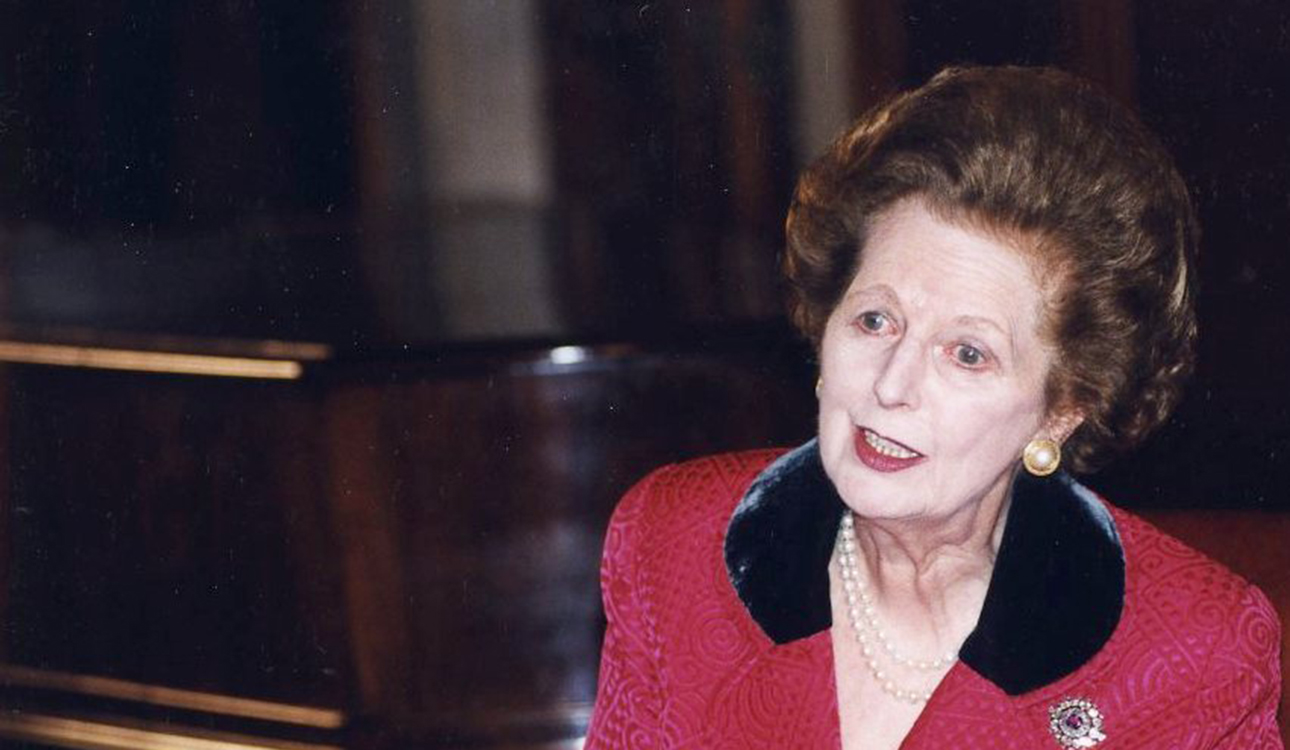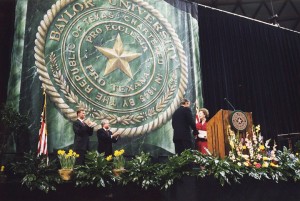

(Photos courtesy of Baylor University Media Communications)
Assistant City Editor
As Prime Minister of the United Kingdom, Margaret Thatcher, the Iron Lady, left her marks on many parts of the world — including Baylor.
In a statement released Monday, President Ken Starr recalled his relationship with the woman he described as “the U.K’s second greatest prime minister of the 20th Century.” According to Starr, after meeting Thatcher in 1998, they developed a personal relationship.
“It was my great privilege over the years to come fully into her orbit. She anointed me as one of ‘her boys.’ All of us adored her,” Starr wrote.
In 1999 Thatcher, then nine years out of office, visited Baylor — meeting students, helping a young girl write her book report, and speaking to a crowd of over 5000. She was even named by then President Robert Sloan an “Honorary Alumnus by Choice.”
Then, Baylor was a much different place. There were businesses and parking lots where the broad lawns are near the highway. The great, spired parking garages had yet to tower over campus, and the Baylor Science Building was still a field. In 1999, it had only been three years since the dancing ban was lifted and the Lariat editorial the day after Thatcher’s visit was about the ongoing and contentious debate over allowing women to wear sports bras.
According to a February 24, 1999 article in the Lariat, Thatcher’s speech focused on crime and “the decline of the family,” and touched on the Bosnian conflict and the rise of China. According to another article that day, reaction to Thatcher’s speech, and the Q&A session that followed, was mixed.
“Reaction to the speech varied from glowing reviews of a revered politician to opposition to the conservative views that Lady Thatcher articulates,” the article states.
The next day, students voiced their opinions on her speech in the Lariat. Two letters addressed the conduct of Baylor students during the speech: one complained that Baylor students were getting up and leaving in the middle and another, written by 2001 graduate Michael Wibbelsman, criticized the crowd for clapping at inappropriate moments.
“She is a wonderful lady of high stature and was due more respect than was shown her last night,” Wibbelsman wrote.
Another letter that day, written by Bingqing Huang, then a graduate student criticized Thatcher’s politics.
“Her strong sense of cultural superiority over non-Western countries, almost omnipresent in her speech, can only destroy harmony and peace, aggrandize tensions and conflicts, and divert attention from the real problems threatening all human beings, such as nuclear weapons and pollution,” Huang wrote.
While there was dissent to both Thatcher’s political ideology and speech on campus, the general consensus seemed to be that Thatcher’s presence was both an honor and great opportunity for Baylor and its students. As the Lariat wrote in an editorial critical of Thatcher’s speech:
“Whatever one may think about Thatcher’s politics and ideology, she is without a doubt a woman with class, poise and dignity — virtues that all students should admire.”




